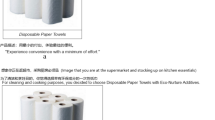Abstract
With rising awareness of the need to implement sustainability practices to decelerate climate change, environmentally-conscious businesses continue to explore means to encourage responsible consumption. We apply the construal level theory (CLT) to examine how marketers can encourage more sustainable consumption behaviors through message framing. Construal Level Theory (CLT) suggests that people construe the same persuasive information differently depending on the construal level or psychological distance (Trope and Liberman 2010). Actions can be viewed at varying levels of abstraction, from low levels (concrete), specifying how the action is performed, to high levels (abstract), specifying why it is performed (Freitas et al. 2004). Previous studies have found that consumers process information more efficiently when there is congruence between the portrayed distance and the message (Stewart and Nandkeolyar 2006). We report experiments situated in two distinct consumption contexts, namely green hotel decision making and sustainable food choices.
In the green hotel decision making study, we implemented a 2 (temporal distance: impending hotel stay vs. future hotel stay) × 2 (benefits: low/high construal level) between-subjects experimental research design. Participants imagined a future out-of-town trip that required booking a green hotel room. Temporal distance manipulation was implemented by having participants consider a trip for the upcoming spring break (near; concrete) or the following year (far; abstract). Participants then viewed an advertisement for a green hotel, which contained one of two advertising messages: first focusing on personal benefit, sleeping on organic and biodegradable mattresses (concrete), and another emphasizing an environmental benefit framed as helping reduce climate change (abstract). Initial findings indicate that when the consumption event is far (i.e., future hotel stay), expected satisfaction is higher when the attributes of the service are presented as abstract (i.e., an environmental benefit; high construal) rather than a concrete (i.e., a personal benefit; low construal).
To further investigate the impact of construal levels in messaging, we extend construal levels in terms of social distance and implement experiments in the context of sustainable food decisions. A similar between-subject study will investigate how consumption decisions are influenced when respondents think about their immediate family (concrete; low construal) or society (abstract; high construal) and sustainable consumption benefits are framed in terms of personal health (concrete; low construal) or environmental benefits (abstract; high construal).
Access this chapter
Tax calculation will be finalised at checkout
Purchases are for personal use only
Similar content being viewed by others
Author information
Authors and Affiliations
Corresponding author
Editor information
Editors and Affiliations
Rights and permissions
Copyright information
© 2022 The Author(s), under exclusive license to Springer Nature Switzerland AG
About this paper
Cite this paper
Garcia, S., Loke, C., Nariswari, A., Lin, J. (2022). Prompting Sustainable Consumption Choices: Exploring the Role of Construal Level Theory: An Abstract. In: Pantoja, F., Wu, S. (eds) From Micro to Macro: Dealing with Uncertainties in the Global Marketplace. AMSAC 2020. Developments in Marketing Science: Proceedings of the Academy of Marketing Science. Springer, Cham. https://doi.org/10.1007/978-3-030-89883-0_163
Download citation
DOI: https://doi.org/10.1007/978-3-030-89883-0_163
Published:
Publisher Name: Springer, Cham
Print ISBN: 978-3-030-89882-3
Online ISBN: 978-3-030-89883-0
eBook Packages: Business and ManagementBusiness and Management (R0)




